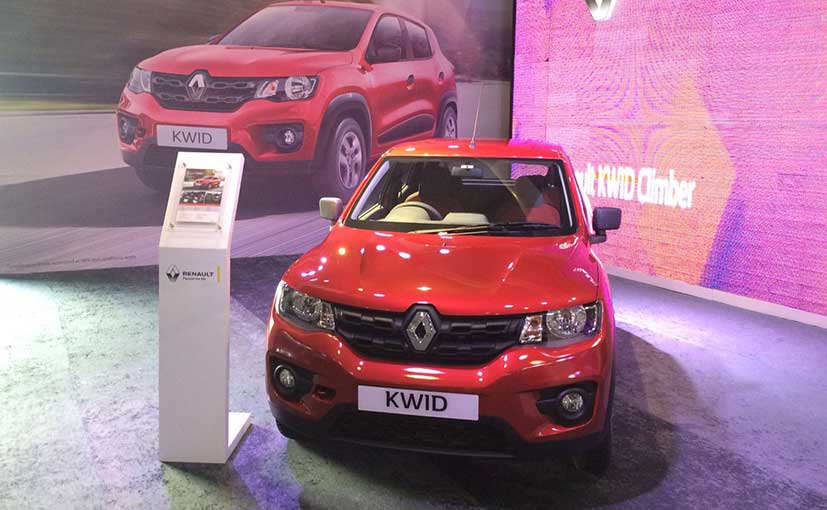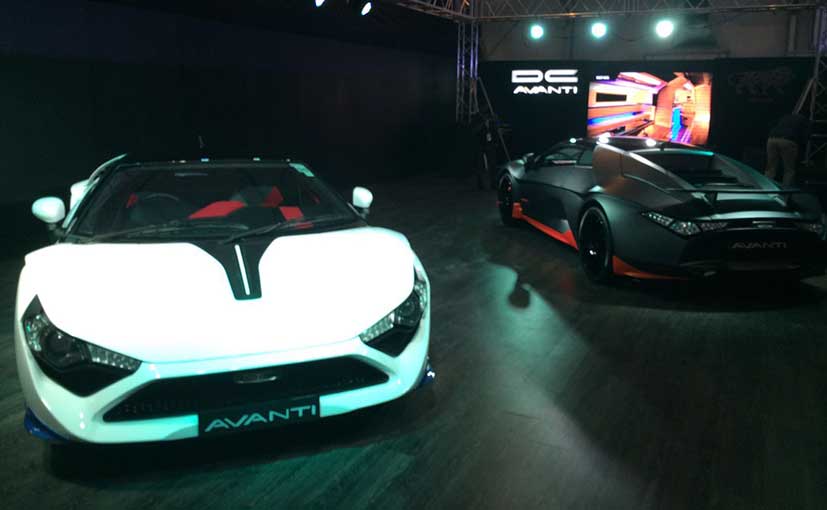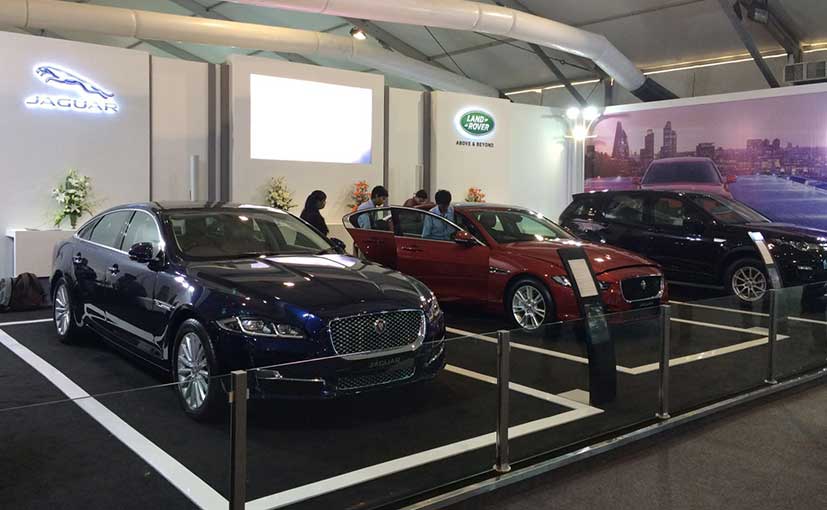

The Jaguar XE and Jaguar XJ on display at the Make In India Week
Despite its incredible growth rate, India has always fallen behind China in terms of manufacturing potential due to the volatility of the Indian market and the ineffectiveness of past governments. To help rectify this issue, Prime Minister Narendra Modi introduced the ‘Make in India’ to help improve India’s status as a global manufacturing hub. This included the introduction of a long list of new government policies that will help increase India’s production capabilities and thereby create new and numerous job opportunities. The auto industry has greatly benefited from these new reforms as we see many foreign companies investing heavily in India in order to set up huge production facilities that are big enough to not only cater to Indian markets but to export batches to foreign markets as well.

The made-in-India, made-for-India Volkswagen Ameo was displayed at the Make In India Week
India’s auto industry is on track to becoming the world’s 3rd largest by 2020 if the current rate of growth continues. Foreign manufacturers like Jaguar Land Rover, Mercedes-Benz, BMW and Renault have all upped their productivity in the sub-continent and have been on a roll in terms of growth. Mercedes launched 15 cars in India in 2015 and has promised 12 more by the end of this year. Improved localisation has helped getting their cost down and this trend is only bound to improve as more and more investments pore into the country in order to bring our manufacturing facilities up to scratch in terms of quality. Renault has also benefitted greatly as its new Kwid hatchback boasts of 98 per cent localisation and as a result, has become the first entry level hatchback to give competition to the Maruti Suzuki Alto. Renault has also announced that India will be the main hub from which the Kwid will be exported to other countries.

India will be the Renault Kwid’s main export hub
This year also saw DC Design launch India’s first indigenous sports car in the form of the DC Avanti. Additionally, Volvo recently launched its 8400 Hybrid City Bus in India with Navi Mumbai being the first city to station the buses. Such trends are only bound to improve over time as an increasing number of global companies have begun considering the Indian market to be a favourable destination. Maruti Suzuki recently announced that for the first time in its history, the new Made-in-India Maruti Suzuki Baleno would be exported to Japan, home of its parent company Suzuki. This could potentially signify that the company is planning on making India its export hub. Another carmaker that has taken the Make In India spirit quite seriously is Volkswagen, as the German conglomerate recently unveiled its made-in-India, made-for-India Ameo compact sedan which was showcased today at the Make In India event. Fiat also intends on capitalizing on the upward movement of the industry as the firm has announced that it is in the process of setting up a factory to locally manufacture Jeep branded vehicles after unveiling the sub-brand at the Auto Expo.

The DC Avanti is India’s first locally manufactured sports car
With India’s doors now open to foreign investors, the auto industry is bound to see a host of radical improvements over the next few years. Not only will this allow for improved economic growth, but factors such as technology and safety will also greatly benefit from Make In India. The country has already become one of the largest automotive export hubs in the world and as a result, India entering the list of top 3 automobile manufacturers in the world by 2020 is no longer a far-fetched idea but rather a fast approaching reality.

The Jaguar XE and Jaguar XJ on display at the Make In India Week
Despite its incredible growth rate, India has always fallen behind China in terms of manufacturing potential due to the volatility of the Indian market and the ineffectiveness of past governments. To help rectify this issue, Prime Minister Narendra Modi introduced the ‘Make in India’ to help improve India’s status as a global manufacturing hub. This included the introduction of a long list of new government policies that will help increase India’s production capabilities and thereby create new and numerous job opportunities. The auto industry has greatly benefited from these new reforms as we see many foreign companies investing heavily in India in order to set up huge production facilities that are big enough to not only cater to Indian markets but to export batches to foreign markets as well.

The made-in-India, made-for-India Volkswagen Ameo was displayed at the Make In India Week
India’s auto industry is on track to becoming the world’s 3rd largest by 2020 if the current rate of growth continues. Foreign manufacturers like Jaguar Land Rover, Mercedes-Benz, BMW and Renault have all upped their productivity in the sub-continent and have been on a roll in terms of growth. Mercedes launched 15 cars in India in 2015 and has promised 12 more by the end of this year. Improved localisation has helped getting their cost down and this trend is only bound to improve as more and more investments pore into the country in order to bring our manufacturing facilities up to scratch in terms of quality. Renault has also benefitted greatly as its new Kwid hatchback boasts of 98 per cent localisation and as a result, has become the first entry level hatchback to give competition to the Maruti Suzuki Alto. Renault has also announced that India will be the main hub from which the Kwid will be exported to other countries.

India will be the Renault Kwid’s main export hub
This year also saw DC Design launch India’s first indigenous sports car in the form of the DC Avanti. Additionally, Volvo recently launched its 8400 Hybrid City Bus in India with Navi Mumbai being the first city to station the buses. Such trends are only bound to improve over time as an increasing number of global companies have begun considering the Indian market to be a favourable destination. Maruti Suzuki recently announced that for the first time in its history, the new Made-in-India Maruti Suzuki Baleno would be exported to Japan, home of its parent company Suzuki. This could potentially signify that the company is planning on making India its export hub. Another carmaker that has taken the Make In India spirit quite seriously is Volkswagen, as the German conglomerate recently unveiled its made-in-India, made-for-India Ameo compact sedan which was showcased today at the Make In India event. Fiat also intends on capitalizing on the upward movement of the industry as the firm has announced that it is in the process of setting up a factory to locally manufacture Jeep branded vehicles after unveiling the sub-brand at the Auto Expo.

The DC Avanti is India’s first locally manufactured sports car
With India’s doors now open to foreign investors, the auto industry is bound to see a host of radical improvements over the next few years. Not only will this allow for improved economic growth, but factors such as technology and safety will also greatly benefit from Make In India. The country has already become one of the largest automotive export hubs in the world and as a result, India entering the list of top 3 automobile manufacturers in the world by 2020 is no longer a far-fetched idea but rather a fast approaching reality.
[“source-ndtv”]





